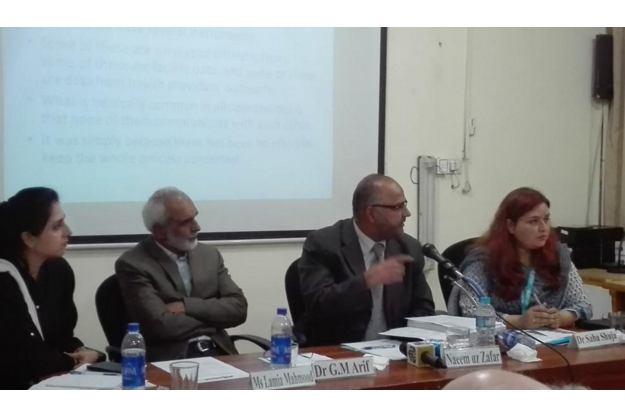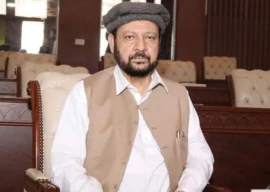
Speaking about efforts by the institute on incurring useful results from available data, SDPI Senior Research Associate Sadia Razzaq said the organisation has launched a Pakistan Data Portal.
The joint project of Alif Ailaan and SDPI, was one of its kind in the country, where a lot of different data sets were brought together with the aim to generate new correlating information, she said.
“Basically education and nutrition meta-data are made available on the portal, to analyse trends in nutrition consumptions in such a way that can influence future policies and help generate more data sets,” she explained.
The online portal has now more than 100 data sets including around 17 data sets on nutrition, Razzaq added. “Our aim is to expand this research mechanism for the whole social sector,” she said.
UNICEF Nutrition officer Dr Saba Shuja said nutrition survey for 2016-17 was very much under discussion. Hopefully a national survey is expected in collaboration with government in the aforementioned time line, she added.
Talking about lessons learnt in terms of achieving sustainable development goals, Shuja said diplomatic interventions should be synchronised with research surveys.
Solid efforts were required to promote complimentary feeding practices as nutrition does not only correspond with poverty but also has a direct correlation with behaviour of the community, she said.
Planning Commission Social Sector Member Naeemuz Zafar said a problem commonly faced was that most of the time the surveys were not communicating or correlating with each other.
Speaking on mechanisms of research, he said evaluation of nutrition should probably start from mother’s health as poverty is not the only indicator leading to nutrition imbalance.
“The system of lady health workers and health evaluation system in schools might have been used to gather valuable information since it has not been used as effectively as it could have been,” he said.
Zafar said the food security ministry was tracking record of commodities in context to the kind of food supplied which was very relevant in monitoring access to a particular food type. There are data sets available which can be used in a holistic way, for a better planning in food and nutrition policy interventions, he said.
Published in The Express Tribune, October 27th, 2015.

1722586547-0/Untitled-design-(73)1722586547-0-165x106.webp)


1732326457-0/prime-(1)1732326457-0-165x106.webp)












COMMENTS (1)
Comments are moderated and generally will be posted if they are on-topic and not abusive.
For more information, please see our Comments FAQ